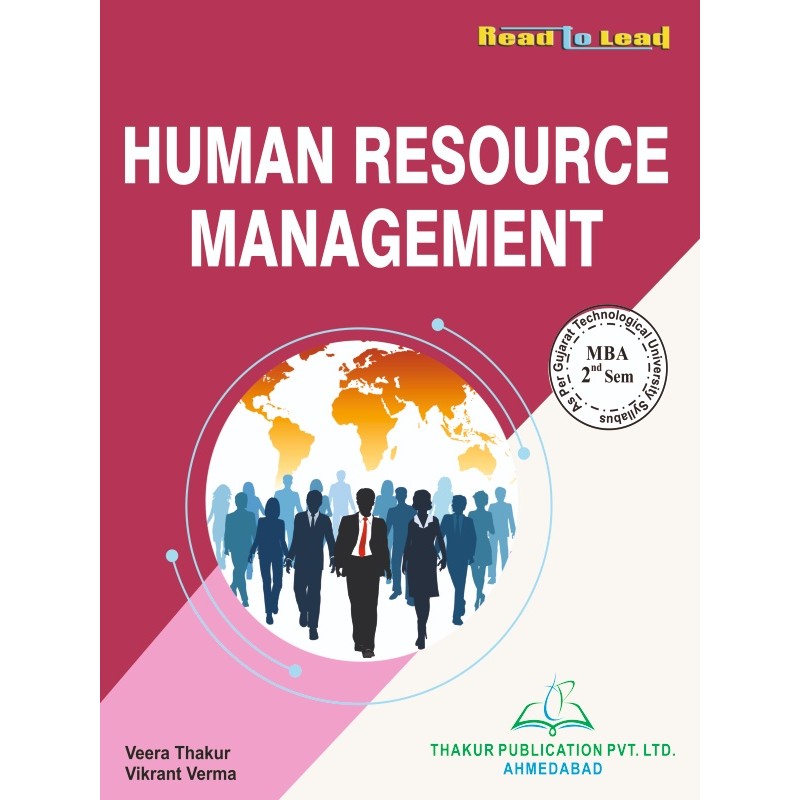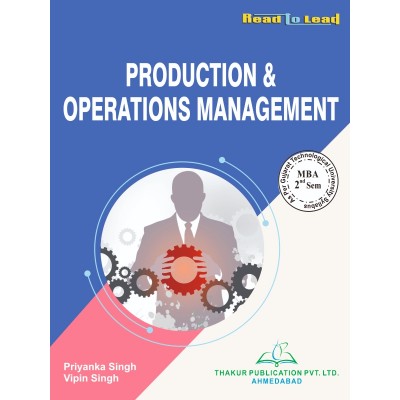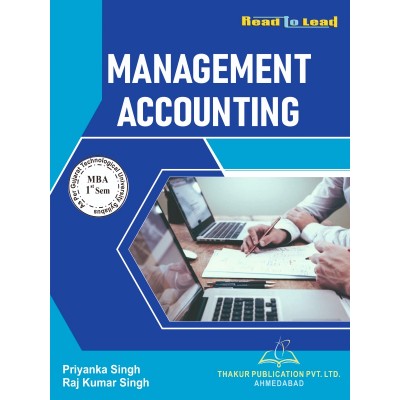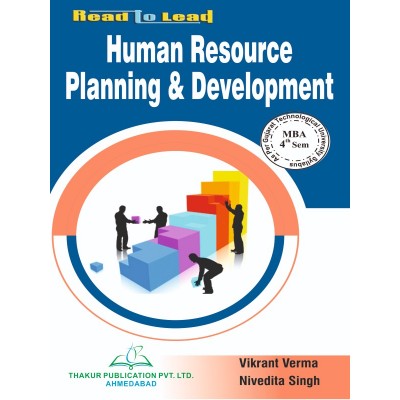Categories
- Pharmacy
-
Nursing
-
MBA
-
BBA
- U.P. State University
- Veer Bahadur Singh Purvanchal University, Jaunpur
- Chaudhary Charan Singh University, Meerut
- Dr. Bhimrao Ambedkar University, Agra
- Chhatrapati Shahu Ji Maharaj University, Kanpur
- Mahatma Jyotiba Phule Rohilkhand University, Bareilly
- Mahatma Gandhi Kashi Vidyapith, Varanasi
- Dr. Ram Manohar Lohia Avadh University, Ayodhya
- Deen Dayal Upadhyaya Gorakhpur University
- Prof. Rajendra Singh (Rajju Bhaiya) University, Prayagraj
-
BCA
- UP State Universities
- University of Pune
- I.K.Gujral Punjab Technical University (PTU)
- University of Rajasthan
- Rashtrasant Tukadoji Maharaj Nagpur University
- Uttar Pradesh NEP2020
- University of Rajasthan ,Jaipur (According to NEP-2020)
- BCCA (B. Com - Computer Science)
- Haryana
- West Bengal
- BBA (CA)
- PUNE BCA (Sci,Commerce)/B.Com (CA)
- Dr. A. P. J. Abdul Kalam Technical University, Lucknow ( AKTU )
- MCA
-
B Ed
- Lucknow University B.Ed Books
- Chaudhary Charan Singh University/Maa Shakambhari University, Saharanpur
- Dr Bhim Rao Ambedkar University, Agra
- Mahatma Gandhi Kashi Vidyapeeth, Varanasi
- Chhatrapati Shahu Ji Maharaj University
- Prof. Rajendra Singh (Rajju Bhaiya) University, Prayagraj (PRSU)
- Mahatma Jyotiba Phule Rohilkhand University(Mjpru), Bareilly
- Dr. Ram Manohar Lohia Avadh University, Ayodhya
- Bundelkhand University, Jhansi
- B.A,B.ed
- B.Sc, B.ed
- Deen Dayal Upadhyaya Gorakhpur University
- Veer Bahadur Purvanchal University (VBPU)
- Maharaja Suhel Dev State University ,Azamgarh (MSDSU)
- Raja Mahendra Pratap Singh State University, Aligarh (RMPSSU)
- Barkatullah Vishwavidyalaya (Bhopal)
- Jiwaji University (Gwalior)
- Vikram University (Ujjain)
- Dr. Harisingh Gour University (Sagar)
- Devi Ahilya Vishwavidyalaya (Indore)
- Rani Durgavati Vishwavidyalaya (Jabalpur)
- Awadhesh Pratap Singh University (Rewa)
- Maharaja Chhatrasal Bundelkhand University (Chhatarpur)
- D. EL. ED
- TET
-
B Com
-
B Sc
- B.Sc. U.P. State Universities Common Syllabus NEP
- Veer Bahadur Singh Purvanchal University, Jaunpur
- University of Lucknow
- Chaudhary Charan Singh University, Meerut
- Madhya Pradesh
- Chhatrapati Shahu Ji Maharaj University, Kanpur
- Dr. Bhimrao Ambedkar University, Agra
- Mahatma Gandhi Kashi Vidyapith, Varanasi
- DEEN DAYAL UPADHYAYA GORAKHPUR UNIVERSITY
- Prof. Rajendra Singh (Rajju Bhaiya) University, Prayagraj
- Dr. Ram Manohar Lohia Avadh University, Ayodhya
- Mahatma Jyotiba Phule Rohilkhand University, Bareilly
- Uttarakhand State Universities
- B.Sc. Bihar Universities Common Syllabus NEP
- University of Rajasthan (Jaipur)
- Haryana
-
Bachelor of Arts [B.A.]
- B.A. Of U.P. State Universities Common Syllabus NEP
- Veer Bahadur Singh Purvanchal University, Jaunpur
- University of Lucknow
- Chaudhary Charan Singh University, Meerut
- Chhatrapati Shahu Ji Maharaj University, Kanpur
- Dr. Bhimrao Ambedkar University, Agra
- Mahatma Gandhi Kashi Vidyapith, Varanasi
- Deen Dayal Upadhyaya Gorakhpur University
- Prof. Rajendra Singh (Rajju Bhaiya) University, Prayagraj
- Dr. Ram Manohar Lohia Avadh University, Ayodhya
- Mahatma Jyotiba Phule Rohilkhand University, Bareilly
- Madhya Pradesh
- Uttarakhand
- Bihar
- University of Rajasthan (Jaipur Syllabus as Per NEP2020)
- Haryana NEP-2020
- B Tech
- LLB
- SWA Education
Human Resource Management

AUTHORS : Veera Thakur, MR. Vikrant Verma
ISBN : 978-93-6180-902-6
Tax excluded
AUTHORS : Veera Thakur, MR. Vikrant Verma
ISBN : 978-93-6180-902-6
Syllabus
Course Code: MB02092041
Human Resource Management
|
Module
|
Contents
|
Sessions
|
Marks
|
|
I
|
Introduction to Human Resource Management: o Meaning, Objectives, Scope and Functions of HRM in organizations o Changing environment of HRM in India and Internationally: Internal and External Environment Analysis o Emerging Roles and Characteristics of HR executives o Strategic HR: HRM function as a strategic contributor to the company’s bottom line o Global Trends Shaping HR o Creating an HR based Competitive Advantage – Integrative Role of HR Managers and other Line Managers o HR as a Profit Center o Human Resource Systems: Macro and Micro factors influencing Design of HR Systems
Strategic Staffing of Human Resource
o Job Analysis and Talent Management Process: Essentials of Job Analysis , Importance of Job Analysis, Methods of Job Analysis, Writing Job Descriptions and Job Specifications, o Job Evaluation: Concept, Objectives, Process, Methods, Advantages and Limitations of job evaluation, Competency based job evaluation o Human Resource Planning: Factors Affecting, Techniques of HRP, Strategic HRP, Staffing for Global Assignments o Assessing External and Internal Workforce: Changing Workforce Conditions, Jobs Audit, Employee and Organisational Capabilities Inventory o Predictive Workforce Monitoring, Succession Planning o Trends Shaping HR: Offshoring and Outsourcing HR o HR Planning in Mergers and Acquisitions
Employee Retention:
o Psychological Contract o Employee Performance and Motivation o Employee Turnover: Types / Reasons o Drivers of Retention o Managing Retention o Exit Interviews |
12
|
25
|
|
II
|
Recruitment, Selection, Placement and Talent Management: Recruitment:
o Definition, Process and Forms, Factors governing the Recruitment Policy, Internal & External Sources, Diversity Considerations o Industry Specific Strategy & labor market Choice o Regular vs Flexible Staffing o E-Recruitment, Networking o Recruitment Effectiveness: Local and Global Recruitment
Selection:
o Selection Process - Application Forms, Applicant Job Interest, Pre-employment Screening o Selection Tests – Ability Tests, Personality Tests, o Background Investigation o Interviews: Forms/Types and Effectiveness o Global Staffing: Types and Selection Process o Role of Line & HR manager in Selection
Training and Management Development:
o Employee Orientation / On boarding: Purpose and Process o Improving Performance: The Strategic Context o Training – Training Need Analysis, Training Process o Training Programmes: Design and Development o Types and Methods of Training: OJT, Apprenticeship, Job Instruction Training, Programmed Learning, Lectures and Workshops, Behaviour Modeling, Vestibule Training, Simulated Learning and Gaming, Audio-Visual based Training, Vedio Conferencing, Computer Based Training o Training Design : Learner Characteristics, Instructional Strategies,
Transfer of Training,
o Management Development – Meaning, Purpose, Methods, Managerial OJT and Job Rotation, Succession Planning and Leadership Development o Talent Management and Career Planning o Training Evaluation : Purpose and Methods o Differences between Training and Development |
12
|
25
|
|
III
|
Performance Management & Appraisal:
o Performance Focused Organisational Cultures o Performance Management: Purpose , Process, Perspective and Format o Defining Employees’ Goals and Performance Standards o Performance Appraisal Methods and Tools-360-degree Feedback, Category Scaling Methods, Graphic Rating Scales, Comparative Method, Narrative Method, o Critical Incident Method, Behaviorally Anchored Rating Scales, MBO, o Factors affecting Performance of an Employee, Correcting performance gap in different area o Appraisal Feedback : Purpose and Effectiveness
Compensation and Reward Systems:
o Meaning, types, structure, Strategic approach to compensation o Establishing Strategic Pay Plans o Creating a Market – Competitive Pay Plan, Competency Based Pay, Individual vs Team Rewards, o Organisational Rewards o Global Compensation Issues, Compensating Expatriates and Repatriates, o Financial and Non Financial Incentives as Motivators
Employee Welfare and Social Security:
o Employee Welfare - Objectives of Employee Welfare, Statutory Welfare Facilities as per Factories Act 1948 and Non-Statutory Welfare Facilities o Social Security – Meaning, Features and Classification of Social Security o Social Security Schemes in India – Employee State Insurance, Maternity Benefit, Payment of Gratuity, Employee Provident Fund (Coverage and Operation) |
12
|
25
|
|
IV
|
Industrial Relations
o Definition, Characteristics and Objectives of Industrial Relations, o Factors affecting IR, participants of IR, importance of IR. Approaches to Industrial relations, system of IR in India
Industrial Conflict, and Dispute Resolution:
o Industrial conflict – Meaning, Nature of Industrial conflict o Industrial disputes – Meaning, Causes, Outcomes and Methods of disputes settlement o Collective Bargaining. o ILO – Meaning, Conventions, recommendations
Current Trends in HRM:
o Employee Engagement – Meaning, Degrees, Drivers, and Measurement of Engagement o HR Scorecard. o Knowledge Management o Glass ceiling and Gender Equality o HR Analytics, HR Information System |
10
|
25
|
|
V
|
Practical:
o What are Ethical Organizations? Discuss. o For Ethical Organizations, identify and describe the companies and their ethical HR Practices and Discuss the advantages of being ethical o Visit various organizations: Medium or Large, Public or Private, Domestic or Global (Multinational) and study the formats, objectives and processes as well as improvements made by them and why in all the HR Sub systems – their designing and implementation. o Present a report on the above. |
15
|
NIL
|
6 other products in the same category:
Your review appreciation cannot be sent
Report comment
Report sent
Your report cannot be sent
Write your review
Review sent
Your review cannot be sent

















